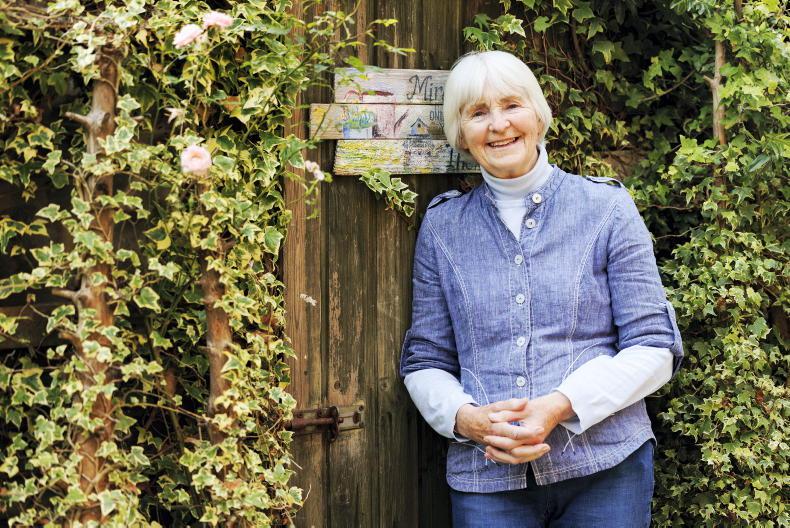With the Government’s aim of having 950,000 electric vehicles (EV) on the road by 2030, what do you need to consider before making the move to buy electric?
One issue for the Government may be the actual supply of electric cars.
There is already a severe shortage of new cars due to the global microchip shortage, and it’s not apparent when that will improve. This is leading to a rise in the price of used cars.
Another factor was the Brexit deal on Christmas Eve 2020 – which was not good news for car buyers.
Import a car from the UK
If importing a car from the UK you will need to pay VAT, and in some cases, customs duty of 10%, which is making the cost more expensive and unappealing. There are also delays with the paperwork involved. Car sales are declining in the UK. In September 2021 new car sales were at their lowest level since 1989. Over the next few months it is unlikely the UK will be able to fulfil its own market which will mean there will be very little surplus for Irish imports.
Supply issue
Lockdown in March 2020 caused the car hire market to disappear, as there was no tourists and little travel. Due to this, car hire companies are not replacing their fleet this year and the rental car market is a significant supply chain to the used car market. As a result of people accumulating savings over the last 12-18 months, there is a growing demand for secondhand and new cars.
Benefits to switching
Government policy is encouraging the switch to electric cars. For example, company-owned vehicles are not subjected to benefit in kind (BIK) for electric cars supplied for use up to 31 December 2025. A Vehicle Registration Tax (VRT) rebate of €5,000 for electric vehicles was also extended to year end 2023. There is a grant of €5,000 available for switching to a new electric vehicle.
Green car loans
Green loans may be cheaper for electric and hybrid cars, but don’t just assume they will be. Always enquire what the normal car loan rate is, so you can compare. The Credit Unions green car loan rate vary from 3.99% to 5.64% versus standard rates of 7.2% or 8.29%. An Post offers green loans (for €20,000+) on electric cars for 8% up to 14%, which is expensive and is dependant on the amount borrowed. For any green loan, proof is required that it is an electric or hybrid vehicle. Some garages offer 0% finance on certain electric cars and also offer green bonuses. AIB is quoting a green loan rate of 6.4% annual percentage rate (APR) for electric and hybrid cars.
Dear Money mentor
We are retired from farming, living in rural Ireland. Our son runs the family farm nearby. We intend to change the car early in 2022. We would like to switch to an electric car, or maybe a hybrid as we are both interested in the environment and would like to do our bit. The real issue is we like to visit our family often, but the shortest journey takes between two and a half or three hours.
Electric cars also seem very expensive, about €50,000. We would likely get about €20,000 in a trade-in deal for our own car, but that means we will need to come up with about €30,000 which seems a lot. We would prefer not to borrow. Any advice would be welcome.
Maura
Margaret writes
Hi Maura,
Before you make any decisions, there are a few areas you need to consider. Yes EVs are more expensive, but much cheaper to run and form part of the Government’s Climate Action Plan.
With an EV be sure to check out the basic range of the car – how long can you drive before you will need to recharge?
There are various reviews that claim if you tend to make long trips, such as motorway trips or driving in the winter, this type of driving can decimate most claimed ranges by about one third.
For any long journey you will need to know where the public charging points are situated. The charging infrastructure in Ireland currently is not adequate, but if you plan ahead you can make long journeys but it may take more time as you will need to recharge, if it is outside the basic range of the EV. If the charging point is a slow or an older charging point it can take between four to six hours to recharge most current electric cars.
You could invest in a home charger, if you go ahead with the purchase. There is also a grant available up to €600 if you wish to install a home charger.
Yes there is a big difference between the most affordable fossil-fuel car and an electric one. For example, you can buy a new Ford Fiesta for €28,000.
If you consider a plug-in hybrid car, on long journeys it will revert to petrol, which seems to defeat the purpose of helping the environment, and also increases the cost. Electric cars are definitely much cheaper to run, especially with petrol and diesel prices at an all-time high (petrol prices reached €1.70 recently, prices which were last seen in 2013).
The VRT rates are also due to change from 1 January 2022, as per Budget 2022. This may mean some cars will be more expensive in January, unless the suppliers absorb the impact of the VRT increases in their pricing.
Green loan rates for electric vehicles vary so if you do decide to borrow, do shop around.
Best of luck if you decide to go ahead.
Margaret
Read more
Money Mentor: joint assessment or be taxed separately in farming
Money Mentor: managing cashflow is critical for farming businesses
With the Government’s aim of having 950,000 electric vehicles (EV) on the road by 2030, what do you need to consider before making the move to buy electric?
One issue for the Government may be the actual supply of electric cars.
There is already a severe shortage of new cars due to the global microchip shortage, and it’s not apparent when that will improve. This is leading to a rise in the price of used cars.
Another factor was the Brexit deal on Christmas Eve 2020 – which was not good news for car buyers.
Import a car from the UK
If importing a car from the UK you will need to pay VAT, and in some cases, customs duty of 10%, which is making the cost more expensive and unappealing. There are also delays with the paperwork involved. Car sales are declining in the UK. In September 2021 new car sales were at their lowest level since 1989. Over the next few months it is unlikely the UK will be able to fulfil its own market which will mean there will be very little surplus for Irish imports.
Supply issue
Lockdown in March 2020 caused the car hire market to disappear, as there was no tourists and little travel. Due to this, car hire companies are not replacing their fleet this year and the rental car market is a significant supply chain to the used car market. As a result of people accumulating savings over the last 12-18 months, there is a growing demand for secondhand and new cars.
Benefits to switching
Government policy is encouraging the switch to electric cars. For example, company-owned vehicles are not subjected to benefit in kind (BIK) for electric cars supplied for use up to 31 December 2025. A Vehicle Registration Tax (VRT) rebate of €5,000 for electric vehicles was also extended to year end 2023. There is a grant of €5,000 available for switching to a new electric vehicle.
Green car loans
Green loans may be cheaper for electric and hybrid cars, but don’t just assume they will be. Always enquire what the normal car loan rate is, so you can compare. The Credit Unions green car loan rate vary from 3.99% to 5.64% versus standard rates of 7.2% or 8.29%. An Post offers green loans (for €20,000+) on electric cars for 8% up to 14%, which is expensive and is dependant on the amount borrowed. For any green loan, proof is required that it is an electric or hybrid vehicle. Some garages offer 0% finance on certain electric cars and also offer green bonuses. AIB is quoting a green loan rate of 6.4% annual percentage rate (APR) for electric and hybrid cars.
Dear Money mentor
We are retired from farming, living in rural Ireland. Our son runs the family farm nearby. We intend to change the car early in 2022. We would like to switch to an electric car, or maybe a hybrid as we are both interested in the environment and would like to do our bit. The real issue is we like to visit our family often, but the shortest journey takes between two and a half or three hours.
Electric cars also seem very expensive, about €50,000. We would likely get about €20,000 in a trade-in deal for our own car, but that means we will need to come up with about €30,000 which seems a lot. We would prefer not to borrow. Any advice would be welcome.
Maura
Margaret writes
Hi Maura,
Before you make any decisions, there are a few areas you need to consider. Yes EVs are more expensive, but much cheaper to run and form part of the Government’s Climate Action Plan.
With an EV be sure to check out the basic range of the car – how long can you drive before you will need to recharge?
There are various reviews that claim if you tend to make long trips, such as motorway trips or driving in the winter, this type of driving can decimate most claimed ranges by about one third.
For any long journey you will need to know where the public charging points are situated. The charging infrastructure in Ireland currently is not adequate, but if you plan ahead you can make long journeys but it may take more time as you will need to recharge, if it is outside the basic range of the EV. If the charging point is a slow or an older charging point it can take between four to six hours to recharge most current electric cars.
You could invest in a home charger, if you go ahead with the purchase. There is also a grant available up to €600 if you wish to install a home charger.
Yes there is a big difference between the most affordable fossil-fuel car and an electric one. For example, you can buy a new Ford Fiesta for €28,000.
If you consider a plug-in hybrid car, on long journeys it will revert to petrol, which seems to defeat the purpose of helping the environment, and also increases the cost. Electric cars are definitely much cheaper to run, especially with petrol and diesel prices at an all-time high (petrol prices reached €1.70 recently, prices which were last seen in 2013).
The VRT rates are also due to change from 1 January 2022, as per Budget 2022. This may mean some cars will be more expensive in January, unless the suppliers absorb the impact of the VRT increases in their pricing.
Green loan rates for electric vehicles vary so if you do decide to borrow, do shop around.
Best of luck if you decide to go ahead.
Margaret
Read more
Money Mentor: joint assessment or be taxed separately in farming
Money Mentor: managing cashflow is critical for farming businesses









SHARING OPTIONS